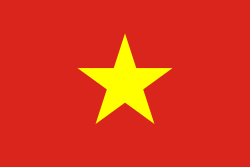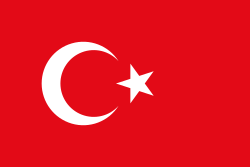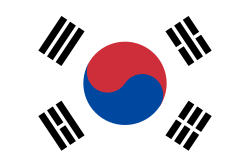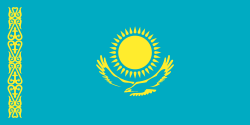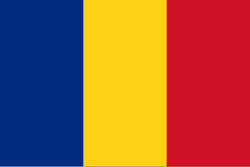Wang Yeu-tzuoo
| Wang Yeu-tzuoo | |||||||||||||
 | |||||||||||||
| Wang Yeu-tzuoo 2014 in Wimbledon | |||||||||||||
| Spitzname: | Jimmy | ||||||||||||
| Nation: | |||||||||||||
| Geburtstag: | 8. Februar 1985 | ||||||||||||
| Größe: | 180 cm | ||||||||||||
| Gewicht: | 73 kg | ||||||||||||
| 1. Profisaison: | 2001 | ||||||||||||
| Spielhand: | Rechts, beidhändige Rückhand | ||||||||||||
| Trainer: | Dejan Petrovic Vahe Assadourian | ||||||||||||
| Preisgeld: | 1.145.246 US-Dollar | ||||||||||||
| Einzel | |||||||||||||
| Karrierebilanz: | 41:48 | ||||||||||||
| Höchste Platzierung: | 85 (6. März 2006) | ||||||||||||
| |||||||||||||
| Doppel | |||||||||||||
| Karrierebilanz: | 7:20 | ||||||||||||
| Höchste Platzierung: | 190 (22. Juli 2013) | ||||||||||||
| Aktuelle Platzierung: | 800 | ||||||||||||
| |||||||||||||
| Mixed | |||||||||||||
| |||||||||||||
| Letzte Aktualisierung der Infobox: 10. September 2018 | |||||||||||||
| Quellen: offizielle Spielerprofile bei der ATP/WTA (siehe Weblinks) | |||||||||||||
Wang Yeu-tzuoo (oft auch Jimmy Wang, chinesisch 王宇佐, Pinyin Wáng Yǔzuǒ, * 8. Februar 1985 in Saudi-Arabien) ist ein taiwanischer Tennisspieler.
Karriere
Wang, der mit sieben Jahren mit dem Tennisspielen angefangen hat, war in seiner Juniorenkarriere mehrfach erfolgreich. So erreichte er im Jahr 2001 die Einzelfinals bei den Australian Open und den US Open, verlor diese jedoch gegen Janko Tipsarević und Gilles Müller. Seine höchste Platzierung in der Juniorenweltrangliste war Rang drei.
Im Laufe seiner Profikarriere ist Wang hauptsächlich im Einzel aktiv. Er konnte auf der zweitklassigen ATP Challenger Tour bislang fünf Titel gewinnen, wobei sein letzter Sieg auf das Jahr 2007 datiert. Sämtliche Titel gewann er auf Hartplatz. Bei Grand-Slam-Turnieren erreichte er 2006 in Melbourne und in Wimbledon jeweils die zweite Runde, was sein bestes Resultat bei Grand Slams darstellt.
Seit 2001 spielt Wang für die taiwanische Davis-Cup-Mannschaft. Mit insgesamt 24 Siegen ist er deren erfolgreichster Spieler in der Davis-Cup-Geschichte.
Erfolge
| Legende (Anzahl der Siege) |
| Grand Slam |
| Tennis Masters Cup ATP World Tour Finals |
| ATP Masters Series ATP World Tour Masters 1000 |
| ATP International Series Gold ATP World Tour 500 |
| ATP International Series ATP World Tour 250 |
| ATP Challenger Tour (6) |
Einzel
Turniersiege
| Nr. | Datum | Turnier | Belag | Finalgegner | Ergebnis |
|---|---|---|---|---|---|
| 1. | 19. Mai 2002 | Hartplatz | 6:3, 6:1 | ||
| 2. | 2. März 2005 | Hartplatz | 6:3, 7:64 | ||
| 3. | 11. September 2005 | Hartplatz | 4:6, 6:4, 6:3 | ||
| 4. | 3. Mai 2007 | Hartplatz | 6:3, 6:2 | ||
| 5. | 29. Juli 2007 | Hartplatz | 6:3, 3:6, 6:4 |
Doppel
Turniersiege
| Nr. | Datum | Turnier | Belag | Partner | Finalgegner | Ergebnis |
|---|---|---|---|---|---|---|
| 1. | 31. März 2013 | Hartplatz | 6:1, 6:2 |
Weblinks
- ATP-Profil von Wang Yeu-tzuoo (englisch)
- ITF-Profil von Wang Yeu-tzuoo (englisch)
- Davis-Cup-Statistik von Wang Yeu-tzuoo (englisch)
| Personendaten | |
|---|---|
| NAME | Wang, Yeu-tzuoo |
| KURZBESCHREIBUNG | taiwanischer Tennisspieler |
| GEBURTSDATUM | 8. Februar 1985 |
| GEBURTSORT | Saudi-Arabien |
Auf dieser Seite verwendete Medien
Pictograms of Olympic sports - Tennis. This is unofficial sample picture. Images of official Olympic pictograms for 1948 Summer Olympics and all Summer Olympics since 1964 can be found in corresponding Official Reports.
Chinese Taipei Olympic Flag. According to the official website of Chinese Taipei Olympic Committee, Blue Sky(circle) & White Sun(triangles) above the Olympic rings is neither the National Emblem of the Republic of China, nor the Party Emblem of Kuomintang (KMT), but a design in between, where the triangles do not extend to the edge of the blue circle, as registered at International Olympic Committee in 1981 and digitally rendered in 2013. Besides, the blue outline of the five-petaled plum blossom is broader than the red one. Moreover, the CMYK code of the blue one and the Blue Sky & White Sun is "C100-M100-Y0-K0", and different from the Olympic rings (C100-M25-Y0-K0). Note that it's the only version recognized by IOC.
Chinese Taipei Olympic Flag. According to the official website of Chinese Taipei Olympic Committee, Blue Sky(circle) & White Sun(triangles) above the Olympic rings is neither the National Emblem of the Republic of China, nor the Party Emblem of Kuomintang (KMT), but a design in between, where the triangles do not extend to the edge of the blue circle, as registered at International Olympic Committee in 1981 and digitally rendered in 2013. Besides, the blue outline of the five-petaled plum blossom is broader than the red one. Moreover, the CMYK code of the blue one and the Blue Sky & White Sun is "C100-M100-Y0-K0", and different from the Olympic rings (C100-M25-Y0-K0). Note that it's the only version recognized by IOC.



